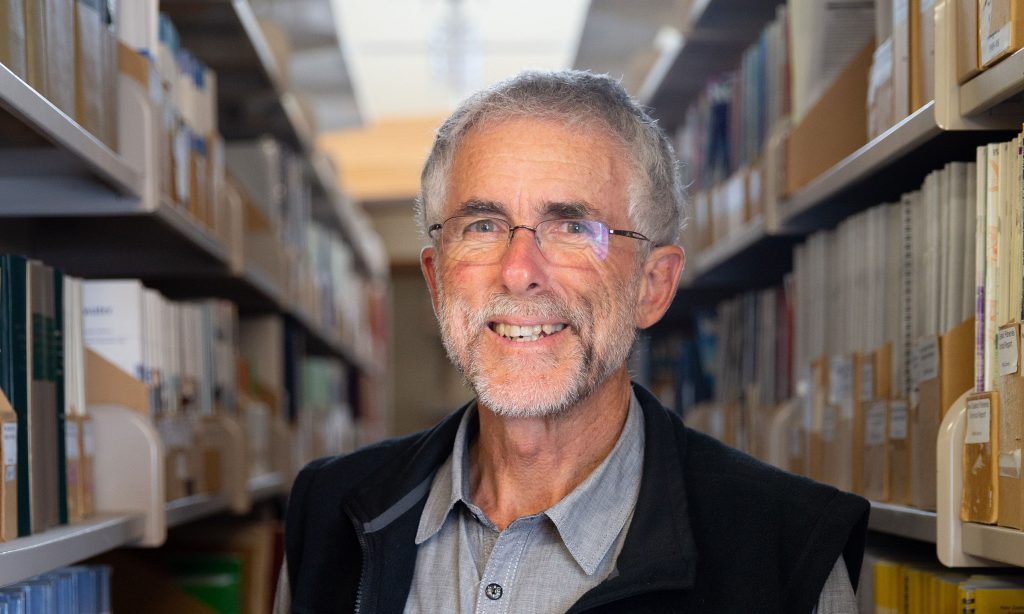- Simulating New Zealand's changing climate
RELATED RESEARCH
David Wratt

David is an emeritus researcher with NIWA – whose lifelong contribution transcends ordinary employment relationships. He’s the chair of our Independent Science Panel, and so is one of the Challenge’s wise minds. We suggest he might also be likened to one of the grandparents of climate science in New Zealand.
“Over the past three decades,” David reflects, “I’ve drawn on and explained the research of many talented climate scientists – to stakeholders in New Zealand and internationally. I’ve also helped scientists plan, prioritise and resource their work, in consultation with end users and with funders. So I feel more like a farmer encouraging things to grow, than a grandparent.”
The ISP provides the Governance Group with independent science advice, including about science strategy and priorities. “We also help with assessments of science quality and performance,” David explains. “We have robust discussions which usually, but not always, reach consensus. If there are different views, we explain these to the Governance Group, to help them make decisions.”
It must be exciting, but also perhaps surreal, to nurture the waves of young graduates as they set out to understand, describe or even pose solutions for our climate. If David could write his young scientist self a letter, we wondered, what might it say?
His advice is succinct. “Talking with people – stakeholders, research users, members of the public, scientists of many disciplines – is really important. Don’t over-rely on emails!”
While I was on the Bureau of the Intergovernmental Panel on Climate Change, I worked closely with people from all parts of the world, whose disciplines ranged from climate modelling to economics. I’ve learned that diversity brings strength.
David also reflects on the range of voices he’s encountered throughout his research career. “When I started work in the 1970s, I shared an office with Edith Farkas, a Hungarian refugee who carried out important early research on monitoring stratospheric ozone. I’ve been lucky to work with very talented Māori and Pasifika colleagues. While I was on the Bureau of the Intergovernmental Panel on Climate Change, I worked closely with people from all parts of the world, whose disciplines ranged from climate modelling to economics. I’ve learned that diversity brings strength.”
Fifty years since David began his research career, the public conversation on climate change is finally picking up speed. How does David feel about the speed of science – is it moving fast enough?
“I don’t think ‘science’ is the primary constraint to the frustratingly slow speed with which the world is addressing climate change,” David responds. “It’s complex, fraught international political processes. That said, robust scientific knowledge across a whole range of disciplines – social and biophysical science, engineering, economics – is very important for informing detailed decision-making.”
He continues, “There are never enough resources… So the challenge becomes understanding and addressing the most important gaps, to progress the science and to inform action. Earlier in my career, we went through a rather dark and difficult period of cut-throat competition for dollars between organisations and disciplines, and the Challenge is heading in the right direction. My biggest frustration is that, given the need to focus our limited resources, not all of the exciting ideas I have seen put forward can be funded.”
The stakeholder dialogues, the excellent work within the Vision Mātauranga programme, work like this has enabled the Challenge to engage with user communities, identify their needs, and co-develop research plans.
As one of the people charged with navigating a path for the Challenge, does David believe the Challenge is on the right track? “Yes, I do… The stakeholder dialogues, the excellent work within the Vision Mātauranga programme, work like this has enabled the Challenge to engage with user communities, identify their needs, and co-develop research plans. Achieving the Challenge’s mission depends on many players,” David concludes. “So collaborations remain vital. The Challenge must continue to focus its research on selected topics where its efforts will make a major contribution, including building on its specialist modelling work, while continuing to engage with the broad effort to build New Zealand’s resilience to climate change.”